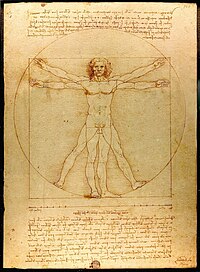| Part of a series on |
| Humanism |
|---|
 |
| Philosophy portal |
Humanism is an approach in study, philosophy, or practice that focuses on human values and concerns. Articles related to humanism include:
| Part of a series on |
| Humanism |
|---|
 |
| Philosophy portal |
Humanism is an approach in study, philosophy, or practice that focuses on human values and concerns. Articles related to humanism include:
A Secular Humanist Declaration - Amsterdam Declaration - Antihumanism
Camp Quest - Celebrancy - Christian humanism - Committee for the Scientific Examination of Religion - Continuum of Humanist Education
Fellowship of Humanity v. County of Alameda - Freedom and Culture - Freethought
Happy Human - Horapollo - Humanism - Humanism and Its Aspirations - Humanist baby naming - Humanist Manifesto - Humanist Manifesto I - Humanist Manifesto II - Humanist officiant - Humanistic capitalism - Humanistic education - Humanistic medicine - Humanistic naturalism - HumanLight
Incarnational humanism - Integral humanism (India) - Integral humanism (Maritain) - International League of Humanists
Philosophy of environment - Post-theism - Posthuman - Posthumanism
The Associated Humans - The Transcendental Temptation: A Critique of Religion and the Paranormal

Posthumanism or post-humanism is an idea in continental philosophy and critical theory responding to the presence of anthropocentrism in 21st-century thought. It encompasses a wide variety of branches, including:

Secular humanism is a philosophy, belief system or life stance that embraces human reason, secular ethics, and philosophical naturalism while specifically rejecting religious dogma, supernaturalism, and superstition as the basis of morality and decision making.

Religious humanism or ethical humanism is an integration of nontheistic humanist ethical philosophy with congregational rites and community activity which center on human needs, interests, and abilities. Self-described religious humanists differ from secular humanists mainly in that they regard the nontheistic humanist life stance as their philosophy while organizing with a congregational model. Religious humanism is sometimes referred to as congregational humanism.
Paul Kurtz was an American scientific skeptic and secular humanist. He has been called "the father of secular humanism". He was Professor Emeritus of Philosophy at the State University of New York at Buffalo, having previously also taught at Vassar, Trinity, and Union colleges, and the New School for Social Research.

Humanistic Judaism is a Jewish movement that offers a nontheistic alternative to contemporary branches of Judaism. It defines Judaism as the cultural and historical experience of the Jewish people rather than a religion, and encourages Jews who are humanistic and secular to celebrate their identity by participating in relevant holidays and rites of passage with inspirational ceremonies that go beyond traditional literature while still drawing upon it.
A Secular Humanist Declaration was an argument for and statement of support for democratic secular humanism. The document was issued in 1980 by the Council for Democratic and Secular Humanism (CODESH), now the Council for Secular Humanism (CSH). Compiled by Paul Kurtz, it is largely a restatement of the content of the American Humanist Association's 1973 Humanist Manifesto II, of which he was co-author with Edwin H. Wilson. Both Wilson and Kurtz had served as editors of The Humanist, from which Kurtz departed in 1979 and thereafter set about establishing his own movement and his own periodical. His Secular Humanist Declaration was the starting point for these enterprises.

Humanist Manifesto is the title of three manifestos laying out a humanist worldview. They are the original Humanist Manifesto, the Humanist Manifesto II (1973), and Humanism and Its Aspirations. The Manifesto originally arose from religious humanism, though secular humanists also signed.
A Humanist Manifesto, also known as Humanist Manifesto I to distinguish it from later Humanist Manifestos in the series, was written in 1933 primarily by Raymond Bragg and published with 34 signers. Unlike the later manifestos, this first talks of a new religion and refers to humanism as "the religion of the future." Nevertheless, it is careful not to express a creed or dogma. The document outlines fifteen affirmations on cosmology, biological and cultural evolution, human nature, epistemology, ethics, religion, self-fulfillment, and the quest for freedom and social justice. This latter, stated in article fourteen, proved to be the most controversial, even among humanists, in its opposition to "acquisitive and profit-motivated society" and its demand for an egalitarian world community based on voluntary mutual cooperation. The document's release was reported by the mainstream media on May 1, simultaneous with its publication in the May/June 1933 issue of the New Humanist.
Humanism and Its Aspirations is the most recent of the Humanist Manifestos, published in 2003 by the American Humanist Association (AHA). The newest one is much shorter, listing six primary beliefs, which echo themes from its predecessors:

Christian humanism regards humanist principles like universal human dignity, individual freedom, and the importance of happiness as essential and principal or even exclusive components of the teachings of Jesus. Proponents of the term trace the concept to the Renaissance or patristic period, linking their beliefs to the scholarly movement also called 'humanism'.

Humanists International is an international non-governmental organisation championing secularism and human rights, motivated by secular humanist values. Founded in Amsterdam in 1952, it is an umbrella organisation made up of more than 160 secular humanist, atheist, rationalist, agnostic, skeptic, freethought and Ethical Culture organisations from over 80 countries.
Humanistic naturalism is the branch of philosophical naturalism wherein human beings are best able to control and understand the world through use of the scientific method, combined with the social and ethical values of humanism. Concepts of spirituality, intuition, and metaphysics are considered subjectively valuable only, primarily because they are unfalsifiable, and therefore can never progress beyond the realm of personal opinion. A boundary is not drawn between nature and what lies "beyond" nature; everything is regarded as a result of explainable processes within nature, with nothing lying outside it.
Secular ethics is a branch of moral philosophy in which ethics is based solely on human faculties such as logic, empathy, reason or moral intuition, and not derived from belief in supernatural revelation or guidance—the source of ethics in many religions. Secular ethics refers to any ethical system that does not draw on the supernatural, and includes humanism, secularism and freethinking. A classical example of literature on secular ethics is the Kural text, authored by the ancient Tamil Indian philosopher Valluvar.

The Amsterdam Declaration 2002 is a statement of the fundamental principles of modern Humanism passed unanimously by the General Assembly of Humanists International (HI) at the 50th anniversary World Humanist Congress in 2002. According to HI, the declaration "is the official statement of World Humanism."

Humanism is a philosophical stance that emphasizes the individual and social potential, and agency of human beings, whom it considers the starting point for serious moral and philosophical inquiry.

The following outline is provided as an overview of and topical guide to humanism:
A. B. Shah (1920-1981) was the founder-president of the Indian Secular Society. The organization had its headquarters in Pune in Shah's lifetime but has now shifted to Mumbai. Until his death, A. B. Shah was the editor of The Secularist, a journal published by the Indian Secular Society (ISS). He also the edited the New Quest published by the Indian Association for Cultural Freedom. Shah took much interest in the problems of Indian Muslims. Shah's writings include What Ails our Muslims? and Religion and Society in India. Shah also edited Jayaprakash Narayan's Prison Diary, written by the prominent Indian leader in jail during the Emergency of 1975. Professor Shah was a mathematician and a scholar, who became interested in comparative religion and social reform, leading to founding Indian Secular Society.
Posthuman or post-human is a concept originating in the fields of science fiction, futurology, contemporary art, and philosophy that means a person or entity that exists in a state beyond being human. The concept aims at addressing a variety of questions, including ethics and justice, language and trans-species communication, social systems, and the intellectual aspirations of interdisciplinarity.
This is a list of articles in philosophy of religion.